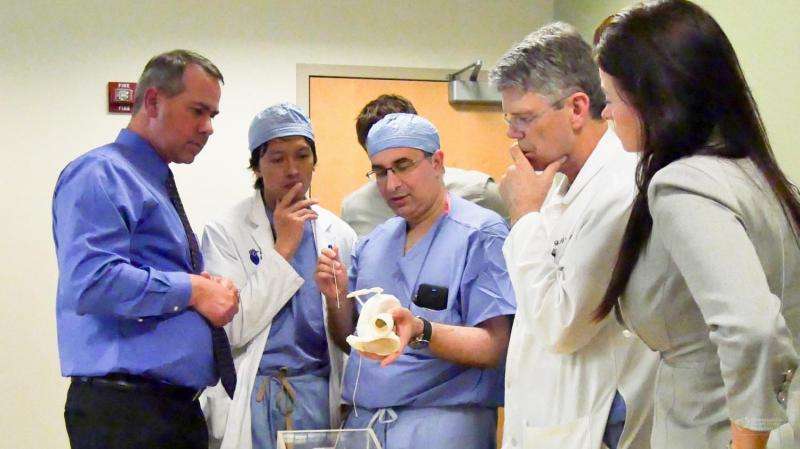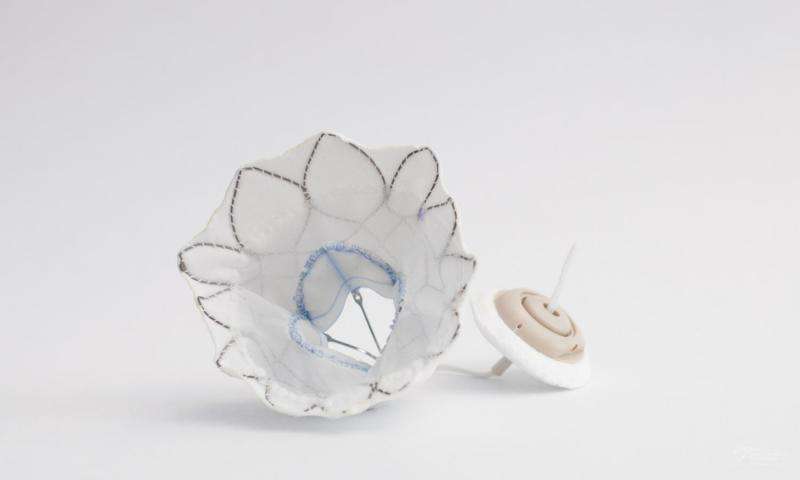MHIF performs first US implant of valve replacement device

Minneapolis Heart Institute Foundation (MHIF) physicians are conducting a research study using the first transcatheter mitral valve replacement in the U.S. at Minneapolis Heart Institute at Abbott Northwestern Hospital.
Dr. Wes Pedersen, Principal Investigator in the study said, "The Tendyne Bioprosthetic Mitral Valve is designed to give implanting physicians total control because it is fully repositionable and retrievable which allows physicians to see the outcome before the procedure is closed." If proven efficacious, this may be an option for patients with diseased, damaged or malfunctioning mitral valves who are not deemed candidates for conventional surgery. "The transcatheter procedure involves implanting the replacement valve inside a beating heart without the need for open heart surgery or cardiopulmonary bypass. Through a small incision in the chest, a catheter enters the bottom of the heart and travels into the left ventricle to position the replacement valve within the natural mitral valve" said Dr. Robert Saeid Farivar, PhD, Chief Cardiothoracic Surgeon and Co-principal Investigator in the study. Jeff Franco, CEO of Tendyne Holdings, Inc. said, "We are excited that the study is taking place at Minneapolis Heart Institute at Abbott Northwestern Hospital. It is a significant milestone for Tendyne, MHIF and the physician community. Our confidence in the MHIF team is high. They are innovative world-class clinical study investigators and highly skilled in patient care. We are collaborating to clinically investigate the Tendyne TMVR device in patients that are not suitable candidates for mitral valve surgery."
Securing the research study in the U.S. this quickly, following Australian and United Kingdom studies, helps keep the United States at the forefront of emerging transcatheter valve therapy research. In September 2013 the FDA issued guidance on Investigational Device Exemptions (IDE's) for early feasibility medical device clinical studies to encourage this type of pivotal research here in the U.S. Per the FDA guidance, IDE's offer a unique opportunity to obtain clinical experience with a new or modified device or new clinical use while utilizing appropriate subject protection measures and good clinical study practices. Dr. Pedersen said, "Collaborating and learning together across research, technology and regulatory improves our ability to identify potential innovative treatments and better patient outcomes here in the U.S. This first study implant has occurred, the participant is ready for discharge and we couldn't be more thrilled."
















